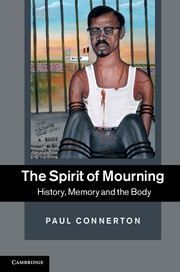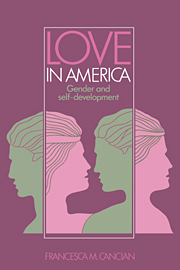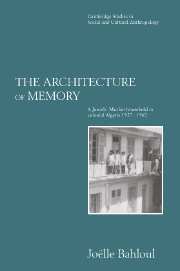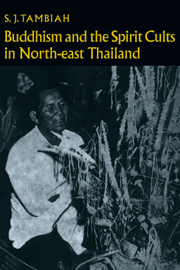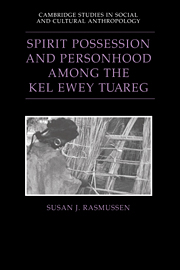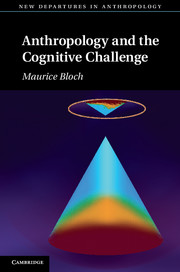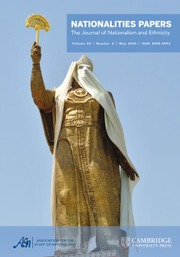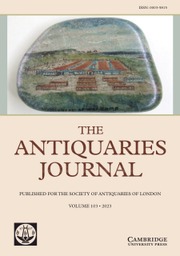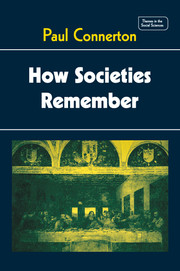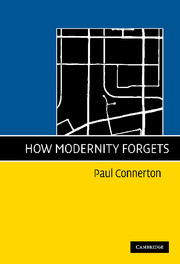The Spirit of Mourning
History, Memory and the Body
$78.99 (C)
- Author: Paul Connerton, University of Cambridge
- Date Published: November 2011
- availability: Available
- format: Hardback
- isbn: 9781107011397
$
78.99
(C)
Hardback
Other available formats:
Paperback, eBook
Looking for an examination copy?
This title is not currently available for examination. However, if you are interested in the title for your course we can consider offering an examination copy. To register your interest please contact [email protected] providing details of the course you are teaching.
-
How is the memory of traumatic events, such as genocide and torture, inscribed within human bodies? In this book, Paul Connerton discusses social and cultural memory by looking at the role of mourning in the production of histories and the reticence of silence across many different cultures. In particular he looks at how memory is conveyed in gesture, bodily posture, speech and the senses – and how bodily memory, in turn, becomes manifested in cultural objects such as tattoos, letters, buildings and public spaces. It is argued that memory is more cultural and collective than it is individual. This book will appeal to researchers and students in anthropology, linguistic anthropology, sociology, social psychology and philosophy.
Read more- Contains an exceptionally wide range of references to marginalised traditions in the West as well as to widely disparate specialist culture-areas outside the West
- Carries forward the breakthroughs accomplished by Merleau-Ponty and Foucault by showing that the priority of the body occurs as memory
- Written by an established Cambridge author who has written two other books on the theme of cultural memory
Reviews & endorsements
Advance Quote: "Drawing on a remarkable range of materials from many cultures and eras, Paul Connerton excavates with deft precision the bodily basis of history, memory, and mourning. Reading this book will change the way you view the trajectory of your life and that of others.” --Edward Casey, Distinguished Professor of Philosophy at SUNY, Stony Brook
Customer reviews
Not yet reviewed
Be the first to review
Review was not posted due to profanity
×Product details
- Date Published: November 2011
- format: Hardback
- isbn: 9781107011397
- length: 190 pages
- dimensions: 235 x 156 x 14 mm
- weight: 0.43kg
- availability: Available
Table of Contents
1. The birth of histories from the spirit of mourning
2. Seven types of forgetting
3. Silences
4. Spatial orientation
5. Tradition as conversation and tradition as bodily re-enactment
6. Tattoos, masks, skin
7. Emphatic, mimetic and cosmic projection.Instructors have used or reviewed this title for the following courses
- Anthropology of the Everyday and the Extraordinary
- Evolutionary Perspectives on Emotion
- Loss and Bereavement
- Seminar: History and Memory
- Social Organization
- Studies in Latin American Culture
Sorry, this resource is locked
Please register or sign in to request access. If you are having problems accessing these resources please email [email protected]
Register Sign in» Proceed
You are now leaving the Cambridge University Press website. Your eBook purchase and download will be completed by our partner www.ebooks.com. Please see the permission section of the www.ebooks.com catalogue page for details of the print & copy limits on our eBooks.
Continue ×Are you sure you want to delete your account?
This cannot be undone.
Thank you for your feedback which will help us improve our service.
If you requested a response, we will make sure to get back to you shortly.
×
